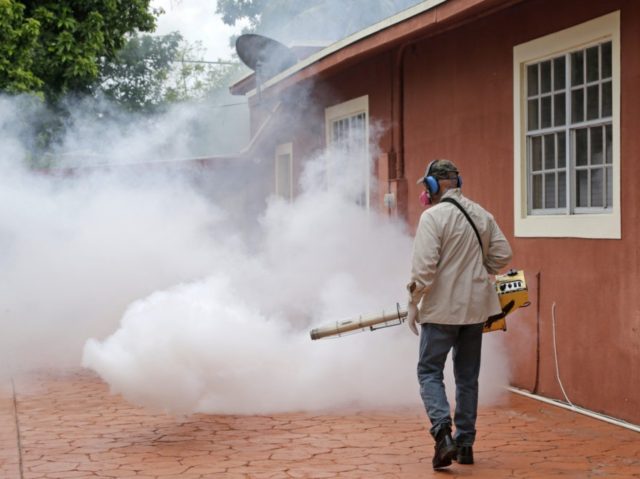The number of Zika-infected people in the Miami outbreak area rapidly climbed from 4 to 14 over the weekend, leading the Centers for Disease Control to warn pregnant women to stay away from the area. Pregnant women who already live in the area have been urged to undergo testing for the virus, which can cause birth defects.
The Associated Press reports that “of the 14 people infected, two are women and 12 are men.”
“The Florida infections are thought to have occurred in a small area just north of downtown Miami, in the Wynwood arts district. The travel warning covers an area of about one square mile in Wynwood to the east of Interstate 95 and south of Interstate 195,” the AP reports. “The area, known for murals spray-painted across warehouses, art galleries, restaurants and boutiques, is rapidly gentrifying and has a number of construction sites where standing water can collect and serve as a breeding ground for mosquitoes.”
The CDC advised women who have visited the Wynwood area since June 15 to avoid getting pregnant for at least eight weeks, according to USA Today, which notes this may be the first time CDC has warned people to avoid a community in the continental United States. A CDC emergency response team is on its way to the affected area.
Health officials remain confident that a wider outbreak will be avoided thanks to “better sanitation, better mosquito control and wider use of window screens and air conditioners” in the United States.
However, CDC director Tom Frieden told USA Today, “We don’t have ideal ways to control the mosquitoes that control Zika. In Miami, aggressive mosquito control measures don’t seem to be working as well as we would have liked.”
Frieden noted that four out of five people infected with Zika present no symptoms, and those that do experience symptoms such as fevers, rashes, and joint pain may not realize they have Zika, making the progress of an outbreak difficult to monitor. Unfortunately, mosquito movements are also difficult to restrain, and avoiding mosquito bites in the summer in Florida is easier said than done.
The Miami Herald reports that “Florida health officials and local mosquito control workers have been inspecting and spraying the area since the first case was diagnosed several weeks ago,” and have also been testing mosquitoes across Miami-Dade and Broward counties.
The Miami Herald alludes to another troubling development for Zika fighters: a recently deceased patient in Utah who traveled to an outbreak area overseas, returned with Zika virus levels 100,000 times higher than other infected individuals, and somehow transmitted the disease to a second Utah resident through a means other than sexual contact – until now believed to be the primary means Zika passes from human to human.

COMMENTS
Please let us know if you're having issues with commenting.